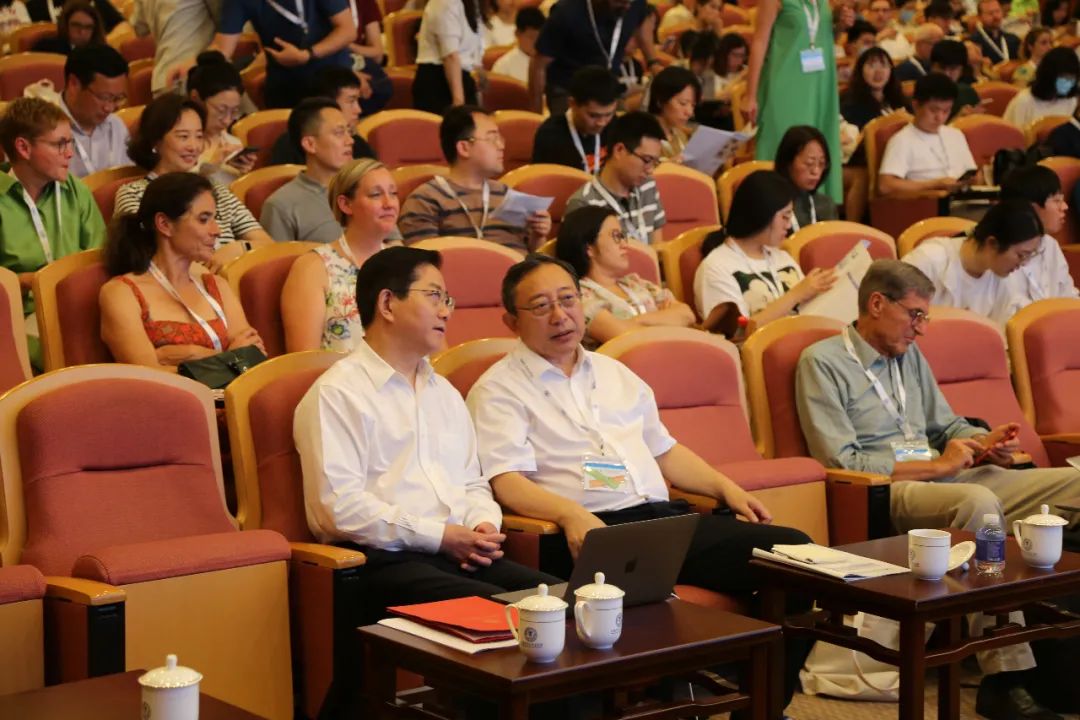
Audience at the conference
From June 28 to June 30, the Cell Symposia-Myeloid Cell Themed Conference jointly organized by Cell Press, SJTUSM, and Shanghai Institute of Immunology (SII) was successfully held at SJTUSM. The conference was initiated and organized by Professor Su Bing, Director of SII of SJTUSM, visiting professor of SII, Florent Ginhoux of the Gustave Roussy Cancer Center in France, Dr. Cheri Sirois, senior editor withCell, and Dr. Bruce Koppelman, senior editor withImmunity. The conference invited 21 internationally renowned scientists from 10 countries including China, the U.S., Italy, the Netherlands, Switzerland, Germany, the U.K., Singapore, Australia, and France. These experts shared the latest progress in myeloid cells and other fields involved. More than 400 faculties and students from 15 countries including China, the U.S., France, Italy, Singapore, Germany, and Spain have registered to participate.
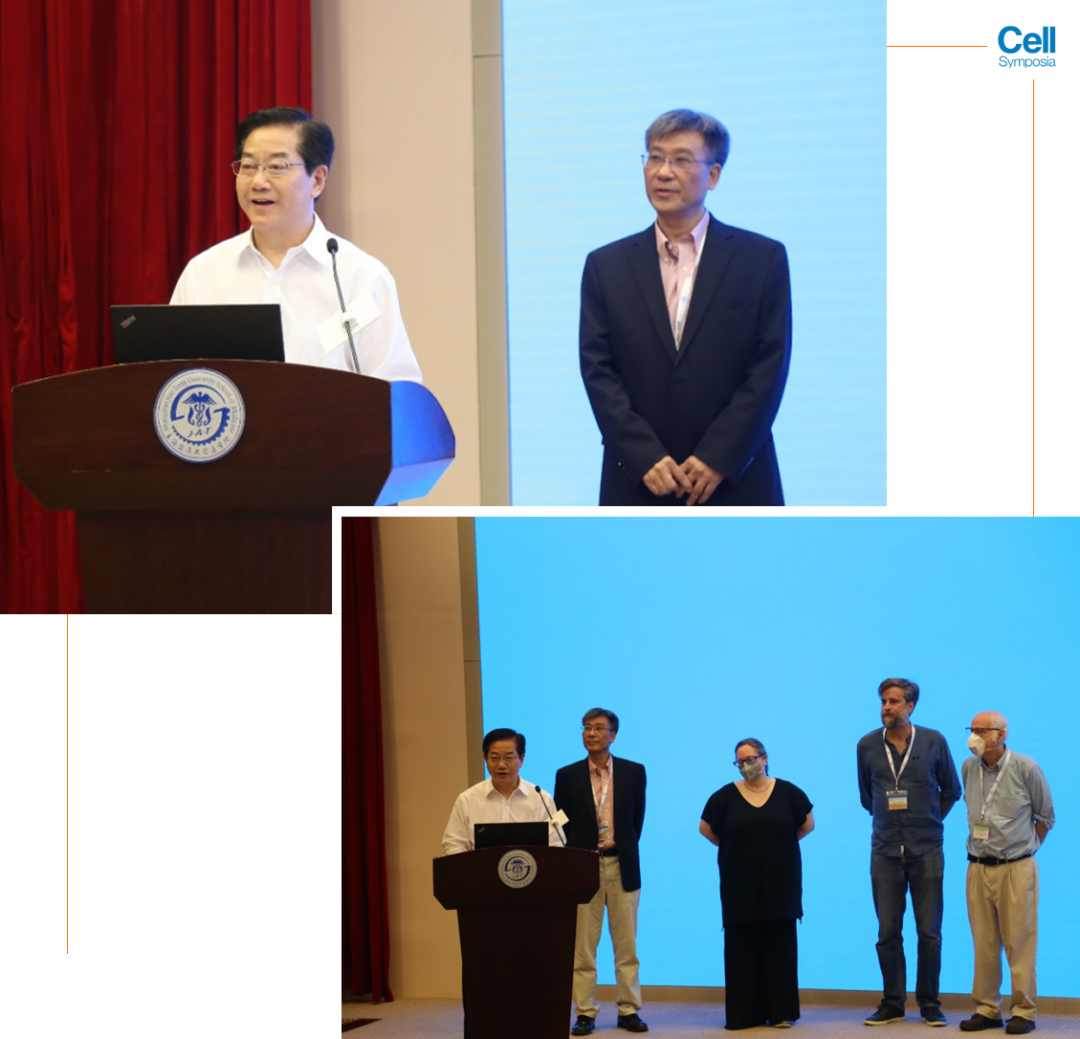
At 14:00 on June 28, Dr. Cheri Sirois, senior editor withCell, hosted the opening ceremony. Dr. Cheri Sirois first expressed her gratitude to Professor Su Bing, Professor Florent Ginhoux, and Dr. Bruce Koppelman for co-organizing this conference. She also invited everyone to come to the stage to welcome all participants on behalf of the conference organizers. Fan Xianqun, Dean of SJTUSM and Academician of the Chinese Academy of Engineering, attended on behalf of SJTUSM to deliver an opening speech. He first expressed his sincere greetings and gratitude to participating experts and scholars from all over the world. Fan declared that this high-level international academic conference held by SJTUSM this year can provide a platform for in-depth learning and exchange for scholars and researchers. Fan said that SJTUSM, as a world-class research medical school in China, has established cooperative partnerships with 64 universities and research institutions in 21 countries and regions. In the past 10 years, SJTUSM has made great progress in immunology with rapidly developing scientific research. A series of results have been published in internationally renowned academic journals such asCell,Cancer Cell, Immunity, and other top journals of the cell series. Fan believes that this conference will facilitate experts, scholars, and researchers from all over the world in sharing and discussing cutting-edge advances in the field of immunology research, especially in myeloid cells. Furthermore, this conference will bolster the development of the immunology discipline. Finally, he expressed his gratitude to Cell Press (one of the organizers), Dr. Cheri Sirois, senior editor withCell, and Dr. Bruce Koppelman, senior editor withImmunityfor organizing the conference. Fan wished success to this conference in the end.
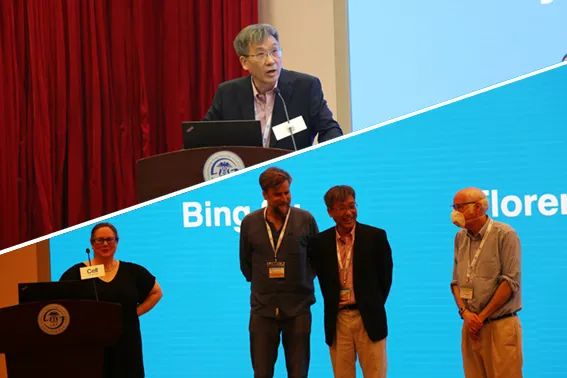
Professor Su Bing, Director of SII, and Dr. Cheri Sirois, Senior Editor withCell, delivered their welcome speeches as the organizers of the conference. Su thanked the leaders at SJTUSM and colleagues from all departments, cooperative units Cell Press, and SII for supporting the conference. Su declared that the Cell Symposia conference held at SJTUSM allows him to meet experts, scholars, and researchers from all over the world in Shanghai. He believes that this conference can provide a communication platform and more cooperation opportunities for researchers worldwide. Through sharing the most cutting-edge scientific progress, participants contribute innovative ideas to new challenges and opportunities, bringing together wisdom and consensus as a result.
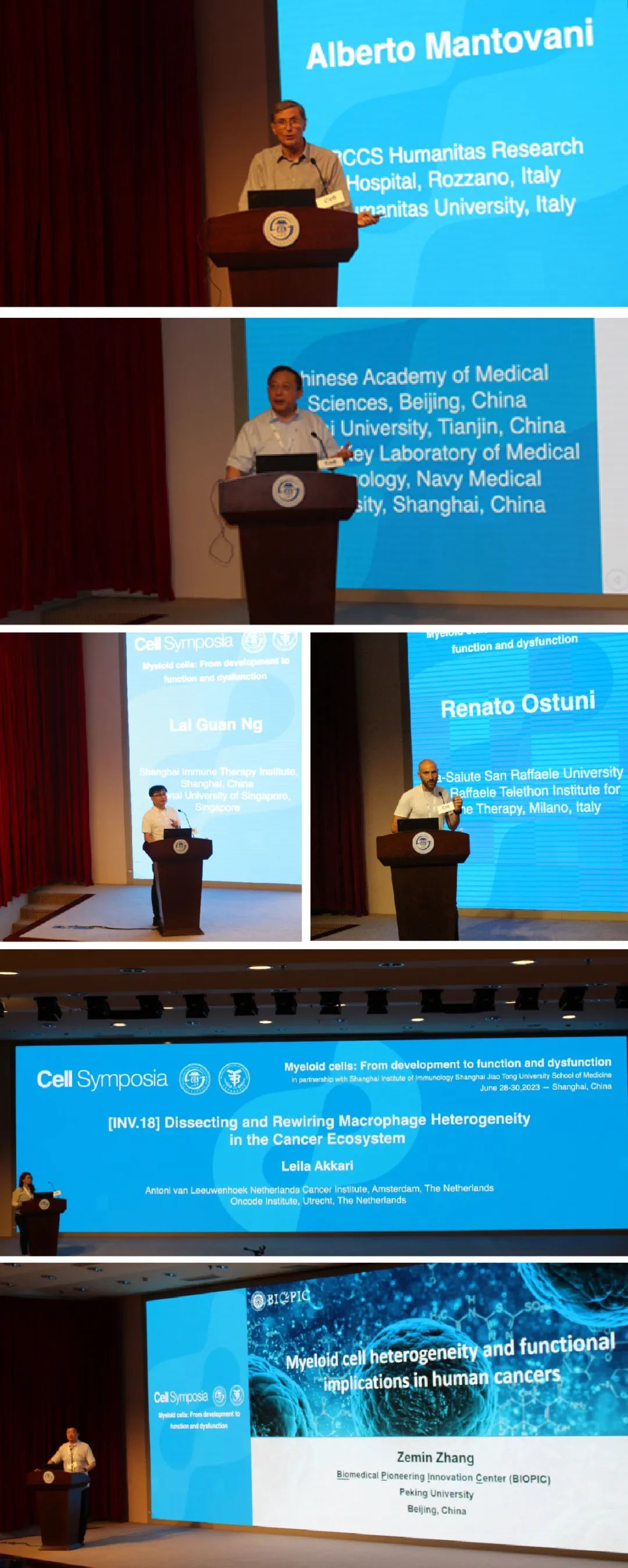
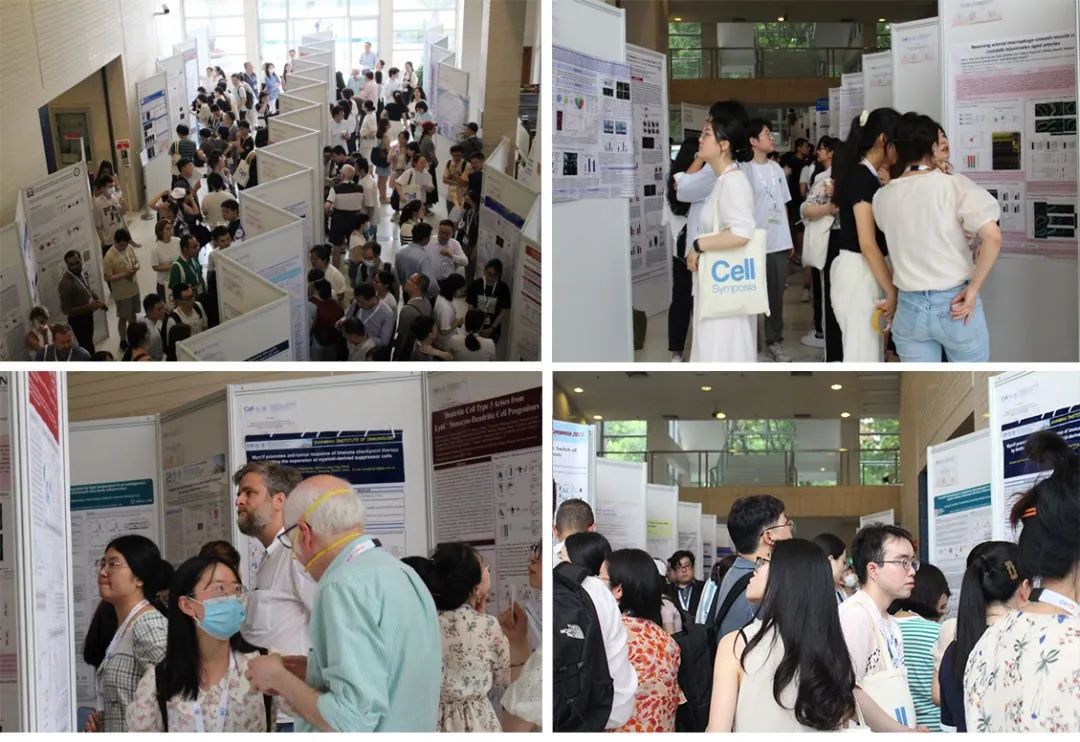
This two-and-a-half-day conference invited two of the world's top immunologists as keynote speakers. They are Professor Marco Colonna of Washington University in St. Louis, and Professor Alberto Mantovani of Humanitas University in Italy. In addition, 19 well-known experts from top universities and research institutes at home and abroad who are active in the frontier field of immunology research exchanged ideas centering on five themes “The ontogeny and basic functions of myeloid cells", "The interaction between myeloid cells and other cells", “Myeloid cells in disease state", "Metabolic regulation of myeloid cells", and "Myeloid cells and tumors". Participants were Academician Cao Xuetao of Nankai University and Chinese Academy of Medical Sciences, Professor Roxane Tussiwand of the National Institutes of Health, Professor Lai Guan Ng of SII, Professor Hu Xiaoyu of the Institute for Immunology of Tsinghua University, Professor Kate Schroder of the University of Queensland in Australia, Professor Carla Rothlin of Yale University, Professor Eicke Latz of the University Hospital Bonn in Germany, Professor Renato Ostuni of the University of San Raffaele in Italy, Professor Andrés Hidalgo of Yale University, Professor Virginia Pascual of Weill Cornell Medical College in the U.S., Professor Shi Peng of Zhejiang University, Professor Clare Lloyd of Imperial College London, Professor Burkhard Becher of the University of Zurich, Switzerland, Professor Tiffany Horng of ShanghaiTech University, Professor Su Bing of SII of SJTUSM, Professor Ye Dan from Fudan University, Professor Zhang Zemin of Peking University, Professor Leila Akkari of the Netherlands Cancer Institute, and Professor Lélia Delamarre of Genentech in the U.S. 12 young scientists and graduate students were selected as Short-talk speakers through poster registration. They shared the latest research progress in their respective immunology research fields at the conference. Hot topics mainly included TREM2, IL-6, inflammasome, ubiquitin ligase (E3-ligase) family, type I interferon, Sin1-mTORC2, itaconate, apolipoprotein E, hypoxia-inducible factor (HIF-1α), other signal recognition receptors and signaling pathways, as well as their regulation and function; the function and regulation of myeloid cell subtypes such as tissue-resident macrophages, pDC and pDC-like cells, neutrophils, adipocytes, eosinophils, and mast cells; immunological issues and immunotherapy methods that are closely related to major human diseases such as neurodegenerative diseases, cytokine release syndrome, asthma, systemic lupus erythematosus, autoinflammatory diseases, tumors, and novel coronavirus pneumonia (COVID-19), chimeric antigen receptor neutrophils (CAR-Neu). They presented a high-level academic feast to the participants. During the poster exchange session at the conference, a total of 134 posters participated in the presentation. The two Best Poster Award winners came from Shanghai, China and Singapore. In addition, the conference held welcome reception, meet-the-speakers and other sessions for deeper communication with speakers and poster authors.
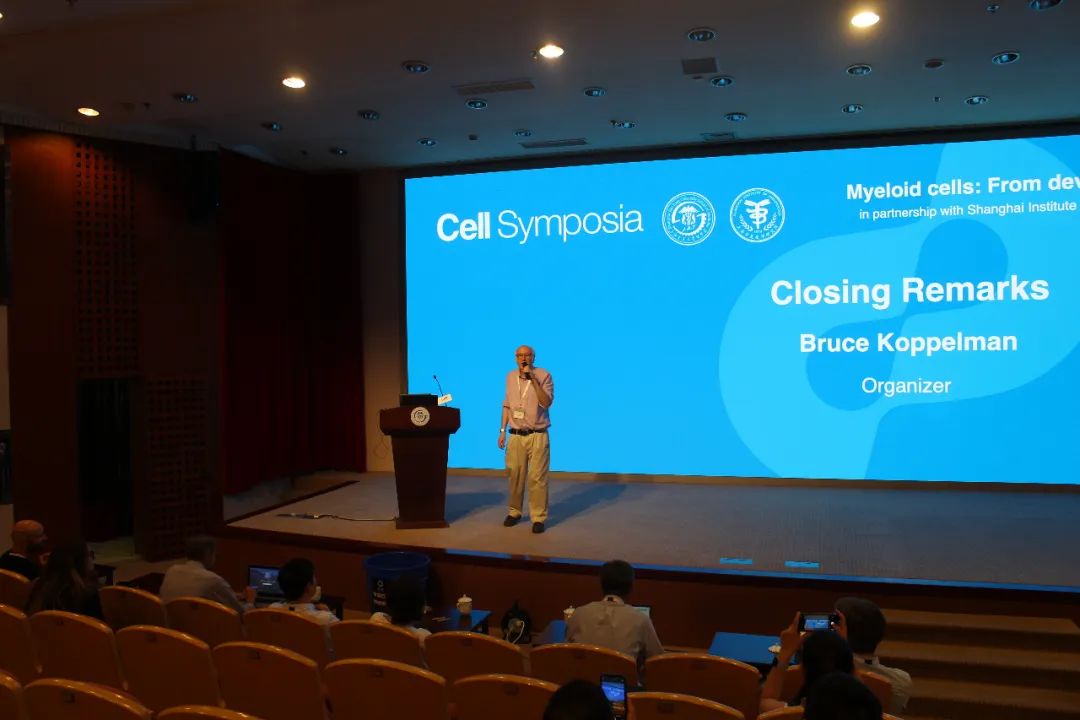
Finally, Dr. Bruce Koppelman, senior editor withImmunityand one of the organizers of the conference, shared his insights on science in his summary. He paid tribute to the spirit of exploration and innovation of scientific workers and expressed his gratitude to all specially invited participants who shared their work. He also expressed his gratitude to all the staff of Cell Press and SII for organizing this conference. The conference was a success.
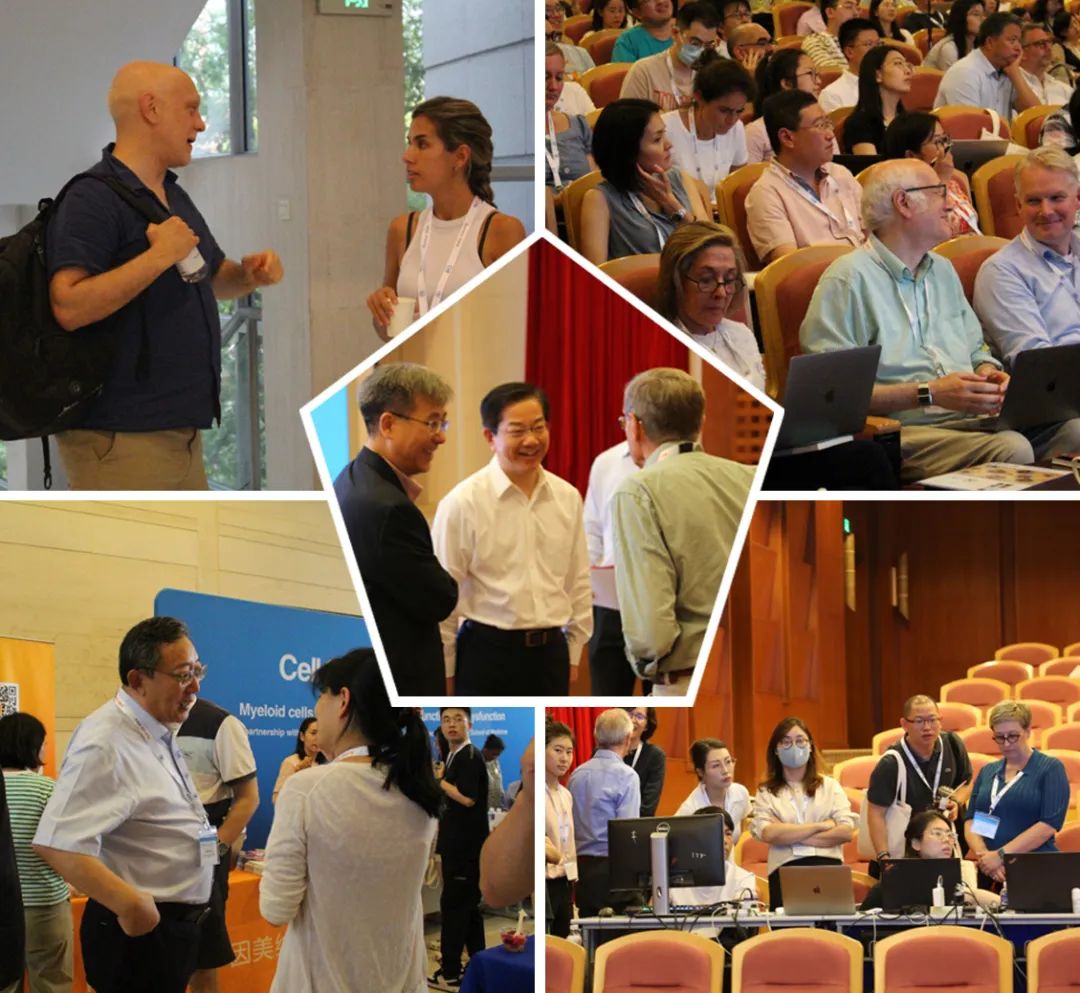
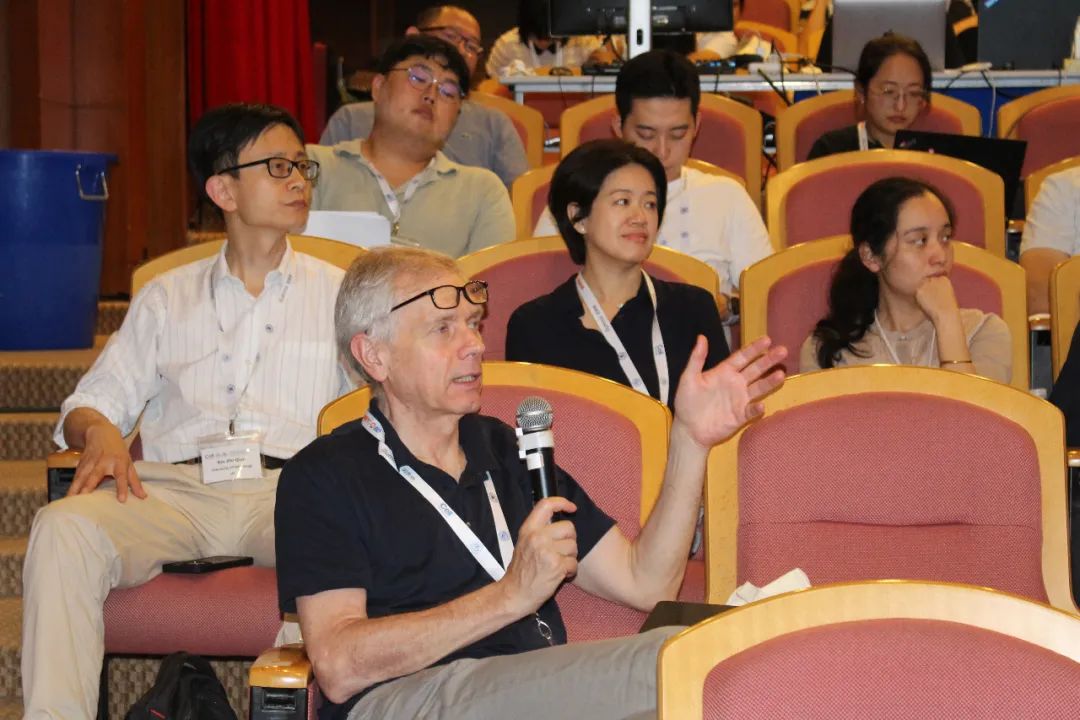
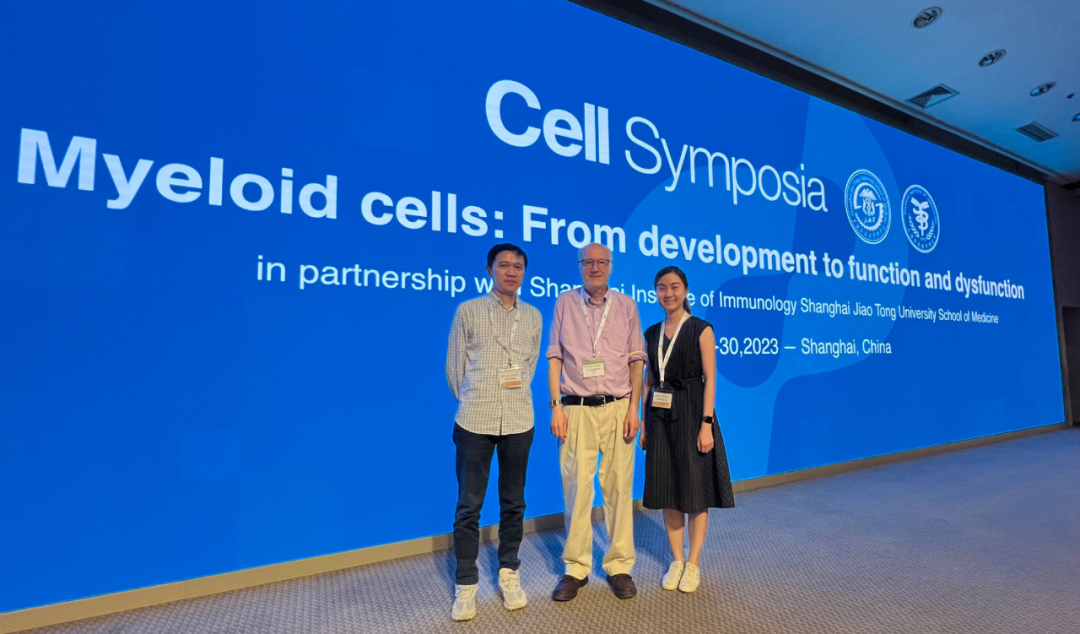
Introduction to Cell Symposia Conference
Cell Symposia is a globally authoritative and prestigious academic conference brand hosted by Cell Press. In May 2019, the initiator and organizer, Professor Su Bing, Dr. Florent Ginhoux, visiting professor of SII, Cheri Sirois, senior editor withCell, and Bruce Koppelman, senior editor withImmunity, agreed to hold Cell Symposium in Shanghai in June 2020: Myeloid Cell in Ontogeny, Immunity and Disease. This conference was approved by Elsevier Ltd, a subsidiary of Cell Press, to be organized by SJTUSM and SII as co-organizers. Due to the pandemic, the conference was postponed to June 2023. This conference invited 21 internationally renowned experts as conference speakers. The conference attendees totaled 436 and it lasted 2.5 days. The participants were mainly scientific researchers in the field of Myeloid Cell research around the world.
As the first conference co-organized by SII of SJTUSM and Cell Press, a top academic publisher, it reflected international peers’ recognition and global influence of SJTUSM and SII in the basic research area. High-end academic conferences can enhance the academic status and global influence of SJTUSM in the field of immunology, as well as effectively promote exchanges between SJTUSM and international colleagues in the field of science and technology.
Founded in 1880, Elsevier is a world-leading science, technology, and medical information data analysis company. It has published more than 34,000 professional books and over 2,500 journals, including the world's top academic journalsThe LancetandCell. By integrating information data and scientific technology, Elsevier provides a variety of online solutions, such as ScienceDirect, Scopus and SciVal. Elsevier's conference department organizes more than 50 academic conferences around the world every year, covering the latest research results in life sciences, physical sciences, engineering, social sciences and health sciences. It is committed to promoting direct exchanges and dialogues between top scientific researchers, industry leaders, and professionals, and creating opportunities for international cooperation. Meanwhile, Elsevier's complete global academic communication network and broad market channels will enhance the international influence of journals and institutions. Elsevier cooperates with global experts and has served more than 30 million scientific researchers, students, and industry personnel over the past 30 years.
As a well-known institution owned by Elsevier, Cell Press is headquartered in Cambridge, Massachusetts, the U.S. Cell Press publishes more than 30 scientific journals covering life, physical, earth, and health sciences, both independently and in partnership with scientific associations.

